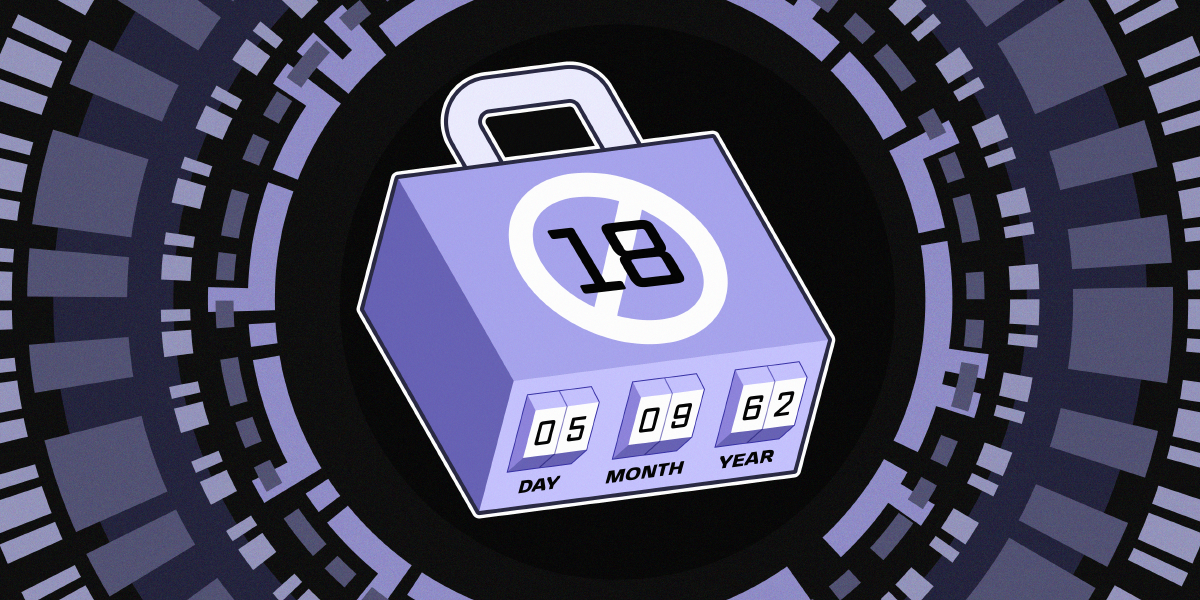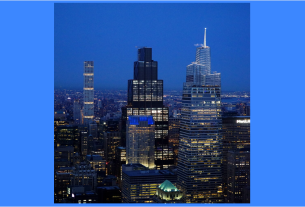If you’ve read about the sudden appearance of age verification across the internet in the UK and thought it would never happen in the U.S., take note: many politicians want the same or even more strict laws. As of July 1st, South Dakota and Wyoming enacted laws requiring any website that hosts any sexual content to implement age verification measures. These laws would potentially capture a broad range of non-pornographic content, including classic literature and art, and expose a wide range of platforms, of all sizes, to civil or criminal liability for not using age verification on every user. That includes social media networks like X, Reddit, and Discord; online retailers like Amazon and Barnes & Noble; and streaming platforms like Netflix and Rumble—essentially, any site that allows user-generated or published content without gatekeeping access based on age.
These laws expand on the flawed logic from last month’s troubling Supreme Court decision, Free Speech Coalition v. Paxton, which gave Texas the green light to require age verification for sites where at least one-third (33.3%) of the content is sexual materials deemed “harmful to minors.” Wyoming and South Dakota seem to interpret this decision to give them license to require age verification—and potential legal liability—for any website that contains ANY image, video, or post that contains sexual content that could be interpreted as harmful to minors. Platforms or websites may be able to comply by implementing an “age gate” within certain sections of their sites where, for example, user-generated content is allowed, or at the point of entry to the entire site.
Although these laws are in effect, we do not believe the Supreme Court’s decision in FSC v. Paxton gives these laws any constitutional legitimacy. You do not need a law degree to see the difference between the Texas law—which targets sites where a substantial portion (one third) of content is “sexual material harmful to minors”—and these laws, which apply to any site that contains even a single instance of such material. In practice, it is the difference between burdening adults with age gates for websites that host “adult” content, and burdening the entire internet, including sites that allow user-generated content or published content.
The law invites parents in Wyoming to take enforcement for the entire state—every resident, and everyone else’s children—into their own hands
But lawmakers, prosecutors, and activists in conservative states have worked for years to aggressively expand the definition of “harmful to minors” and use other methods to censor a broad swath of content: diverse educational materials, sex education resources, art, and even award-winning literature. Books like The Bluest Eye by Toni Morrison, The Handmaid’s Tale by Margaret Atwood, and And Tango Makes Three have all been swept up in these crusades—not because of their overall content, but because of isolated scenes or references.
Wyoming’s law is also particularly extreme: rather than provide enforcement by the Attorney General, HB0043 is a “bounty” law that deputizes any resident with a child to file civil lawsuits against websites they believe are in violation, effectively turning anyone into a potential content cop. There is no central agency, no regulatory oversight, and no clear standard. Instead, the law invites parents in Wyoming to take enforcement for the entire state—every resident, and everyone else’s children—into their own hands by suing websites that contain a single example of objectionable content. Though most other state age-verification laws often allow individuals to make reports to state Attorneys General who are responsible for enforcement, and some include a private right of action allowing parents or guardians to file civil claims for damages, the Wyoming law is similar to laws in Louisiana and Utah that rely entirely on civil enforcement.
This is a textbook example of a “heckler’s veto,” where a single person can unilaterally decide what content the public is allowed to access. However, it is clear that the Wyoming legislature explicitly designed the law this way in a deliberate effort to sidestep state enforcement and avoid an early constitutional court challenge, as many other bounty laws targeting people who assist in abortions, drag performers, and trans people have done. The result? An open invitation from the Wyoming legislature to weaponize its citizens, and the courts, against platforms, big or small. Because when nearly anyone can sue any website over any content they deem unsafe for minors, the result isn’t safety. It’s censorship.
That also means your personal website or blog—if it includes any “sexual content harmful to minors”—is also at risk.
Imagine a Wyomingite stumbling across an NSFW subreddit or a Tumblr fanfic blog and deciding it violates the law. If they were a parent of a minor, that resident could sue the platform, potentially forcing those websites to restrict or geo-block access to the entire state in order to avoid the cost and risk of litigation. And because there’s no threshold for how much “harmful” content a site must host, a single image or passage could be enough. That also means your personal website or blog—if it includes any “sexual content harmful to minors”—is also at risk.
This law will likely be challenged, and eventually, halted, by the courts. But given that the state cannot enforce it, those challenges will not come until a parent sues a website. Until then, its mere existence poses a serious threat to free speech online. Risk-averse platforms may over-correct, over-censor, or even restrict access to the state entirely just to avoid the possibility of a lawsuit, as Pornhub has already done. And should sites impose age-verification schemes to comply, they will be a speech and privacy disaster for all state residents.
And let’s be clear: these state laws are not outliers. They are part of a growing political movement to redefine terms like “obscene,” “pornographic,” and “sexually explicit” as catchalls to restrict content for both adults and young people alike. What starts in one state and one lawsuit can quickly become a national blueprint.
If we don’t push back now, the internet as we know it could disappear behind a wall of fear and censorship.
Age-verification laws like these have relied on vague language, intimidating enforcement mechanisms, and public complacency to take root. Courts may eventually strike them down, but in the meantime, users, platforms, creators, and digital rights advocacy groups need to stay alert, speak up against these laws, and push back while they can. When governments expand censorship and surveillance offline, it’s our job at EFF to protect your access to a free and open internet. Because if we don’t push back now, the internet as we know it— the messy, diverse, and open internet we know—could disappear behind a wall of fear and censorship.
Ready to join us? Urge your state lawmakers to reject harmful age-verification laws. Call or email your representatives to oppose KOSA and any other proposed federal age-checking mandates. Make your voice heard by talking to your friends and family about what we all stand to lose if the age-gated internet becomes a global reality. Because the fight for a free internet starts with us.



